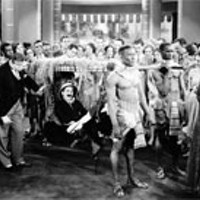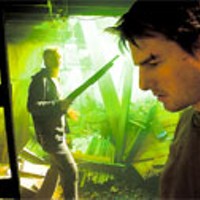

Sayles once played his own small part in the South's development, as a manual laborer digging swimming pools in Atlanta's outlying suburbs. For eight months in 1973, he lived in Atlanta, "doing day labor and avoiding winter" in his native New York. It was then that he observed how "in order to become the New South, certain things had to be jettisoned from the Old South, and whenever that happens -- it's some of what Sunshine State is about -- you lose some good stuff with the bad stuff."
Sunshine State is a penetrating look at the cost of development in human and social terms. It's about the invasive efforts of outside forces to conquer a prime strip of Florida beachfront in the tiny town of Delrona Beach. Streaked with a slightly comical Hiassen-esque theatricality of philosopher golfers, grizzled alligator wranglers and bovine tourists, Sunshine State has characters and dialogue that are a bit hyperbolic for a reason, says Sayles.
"Sunshine State is about a tourist town and there is something very presentational about a tourist town. Edie Falco has that line where, the important thing is "keep that smile on your face even if you're drowning.'"
Sayles acknowledges that the phenomenon treated in Sunshine State is not restricted to Florida but occurs across the country, from Southern cities to Sayles' home in Hoboken, NJ, "a city that is gentrifying fairly rapidly," he says.
"What it's going to mean for Hoboken, probably, is that the kids who grow up there are going to be very unlikely to afford to live there. It's almost like the rug is being pulled out from under them in real estate terms."
It's all part of a larger trend, says Sayles, of America's desire to remake the country in more desirable terms, from parents in Texas trying to purge any undesirable aspects of American history from their children's textbooks to the erasure in Sunshine State of local businesses and African-American history to make way for anonymous, posh retirement homes. Sayles says it's something he sees all the time, "certainly in Hollywood."
"One of my least favorite movies for various reasons in the last decade was The Patriot, where at some point they decided that Mel Gibson was going to be a plantation owner who had these volunteer black people picking cotton on it. And that the British were actually Nazis, so we could kill them in slow motion and really want for it to be very painful. I think it's something that we've always been doing, it's just gotten to really epidemic proportions right now, and especially when you're trying to attract tourism with something.
"Our history is very complicated," Sayles continues. "It's not necessarily all nice. It's not always something that you want to celebrate. So this push to have celebratory history means that you're going to have to doctor the mix quite a bit."





